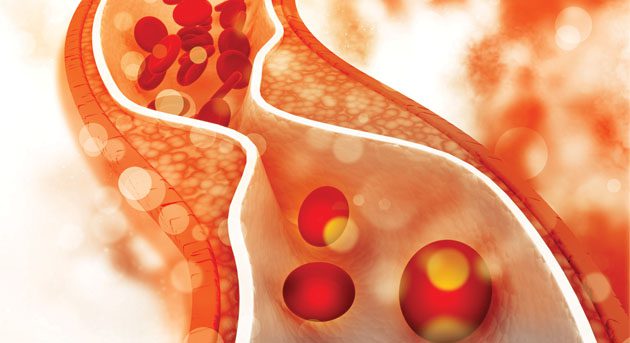Cholesterol is a natural substance that the body produces through the liver. It’s waxy and circulates through the bloodstream, feeding the heart and brain. But when cholesterol is derived from foods like saturated fats and trans fats, the body overproduces LDL, which is the “bad” cholesterol.

HDL is the “good” cholesterol our bodies crave. Without HDL, our brains would not function properly, and we would suffer from other bodily disorders, like heart attacks and strokes. HDL helps to remove the bad cholesterol (LDL) from the body. High levels of LDL may also adversely affect overall health by causing atherosclerosis (plaque in the arteries), cardiovascular disease, and other disorders.
Cholesterol Numbers
Your total cholesterol is made up of both LDL and HDL numbers. Your doctor may order tests in order to check your numbers. The healthiest combination of both types of cholesterol measures HDL, good cholesterol,) around 40, and LDL, bad cholesterol,) around 100.
Risk Factors
Cholesterol, along with triglycerides in the blood, can form atherosclerosis, which as previously mentioned is the plaque that builds up in the arteries. Excessive plaque can increase the chances of a coronary heart attack, heart disease, stroke, and other related issues. Triglycerides are the fat that is stored in the bloodstream from the excess fat in our diets. Triglycerides combine with the high LDL level and create harmful plaque build-up.
Diet & Exercise
Because high levels of LDL and triglycerides are both associated with food intake and the body’s inability to burn fat, adopting healthier habits can help lower cholesterol naturally.
• Eat a healthy diet
• Quit smoking (contributes to atherosclerosis)
• Start a regular exercise program
• Cut back on alcohol and processed foods
Schedule an annual exam with your physician to check your cholesterol levels on a regular basis. If you have high cholesterol, your doctor may prescribe medication to help lower the overall cholesterol levels. In addition to medication, a change in diet can help to decrease LDL and Triglycerides, as well as raise your HDL to optimum levels.
Incorporate Healthy Foods and Nutrients
in Your Diet
A significant contributor to successfully lowering LDL is the addition of soluble fiber, omega-3 fatty acids, mono-saturated fatty acids (MUFAs), powerful antioxidants and lutein, to your diet. However, in order to see the benefit of ultimately lowering bad cholesterol, an overall healthy diet must be maintained. This includes decreasing, and in some cases, completely eliminating processed foods from your diet. Cholesterol-lowering foods can drop your bad cholesterol levels by 5-10% within a few weeks; your cardiologist can speak with you about a personalized dietary plan.
Medications
The most common cholesterol-lowering drugs are statins. In recent years there have been other medication developments that may help to lower your total cholesterol levels.
It’s best to speak with your physician before changing your diet or exercise program. Your doctor will develop a strategy to suit your specific needs, along with a coordinated medication and lifestyle strategy.
Want to know your Cholesterol numbers? Bonita Community Health Center (BCHC) does lab testing onsite.
Bonita Community Health Center offers urgent care, imaging services, physical therapy, and surgical treatment options.
BCHC’s Urgent Care Benefits
• Serving the Community for 19 years
• Urgent Care
• Open 7 days a week
• M-F 7am to 7pm, Sat-Sun 8am to 4pm
• SmartLine Online Check-in “Wait Your Way”
• BCHC has been using the SmartLine for three years now and their waiting room during season has gone from standing room only, to having 4 to 7 patients standing by for a physicians.
• 60% of ER visits would be better served in an Urgent Care
• Urgent care is for non-life-threatening illnesses and injuries.
• BCHC Urgent Care can cost up to 10X less than the ER.
• We are the lower cost alternative to visiting the ER.
• Onsite full imaging center
To find out more or to schedule an appointment, please call (239) 949-1050, or visit bonitahealthcenter.com
Bonita Community Health Center
(239) 949-1050
www.bonitahealthcenter.com










